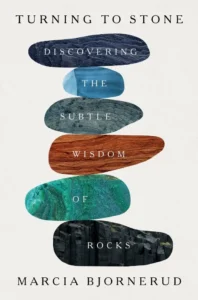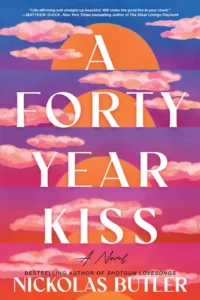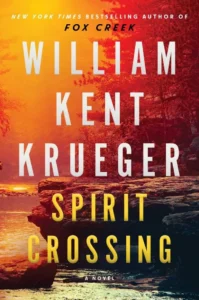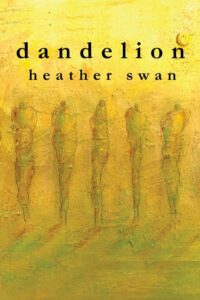Washington Island Literary Festival
2025: HOLDING TIME
September 18 - 20, 2025
Thursday, September 18: Creative Lab
Friday, September 19: Writing Workshops; Poetry Walk; Welcome Reception & Open Mic
Saturday, September 20: Author Talks & Panel Discussions
2025 Presenting Authors
marcia bjornerud, nonfiction
Marcia Bjornerud is Professor of Geosciences and Environmental Studies at Lawrence University in Wisconsin. Her research focuses on the physics of earthquakes and mountain building, and she combines field-based studies of bedrock geology with quantitative models of rock mechanics. She has done research in high arctic Norway and Canada as well as mainland Norway, Italy, New Zealand, and the Lake Superior region. A contributing writer to The New Yorker, Wired, the Wall Street Journal and the Los Angeles Times, she is also the author of several books for popular audiences: Reading the Rocks, Timefulness, Geopedia and the recently published Turning to Stone: Discovering the Subtle Wisdom of Rocks.
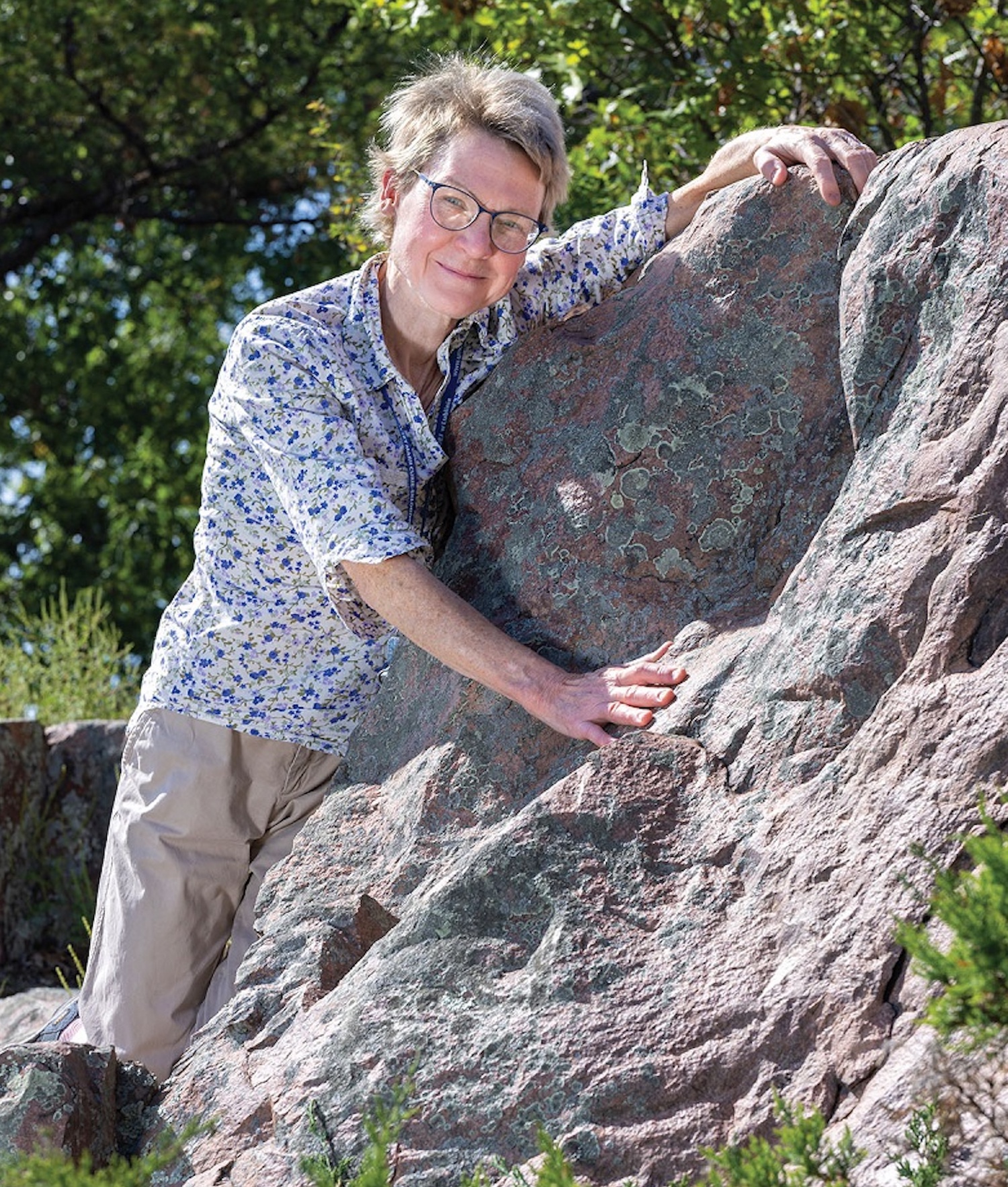
marcia bjornerud nonfiction
nickolas butler, fiction
Nickolas Butler was born in Allentown, Pennsylvania, raised in Eau Claire, Wisconsin, and educated at the University of Wisconsin-Madison and the University of Iowa Writer’s Workshop. He is the internationally best-selling and prize-winning author of one collection of short stories and three novels. He lives in rural Wisconsin with his wife and their two children.
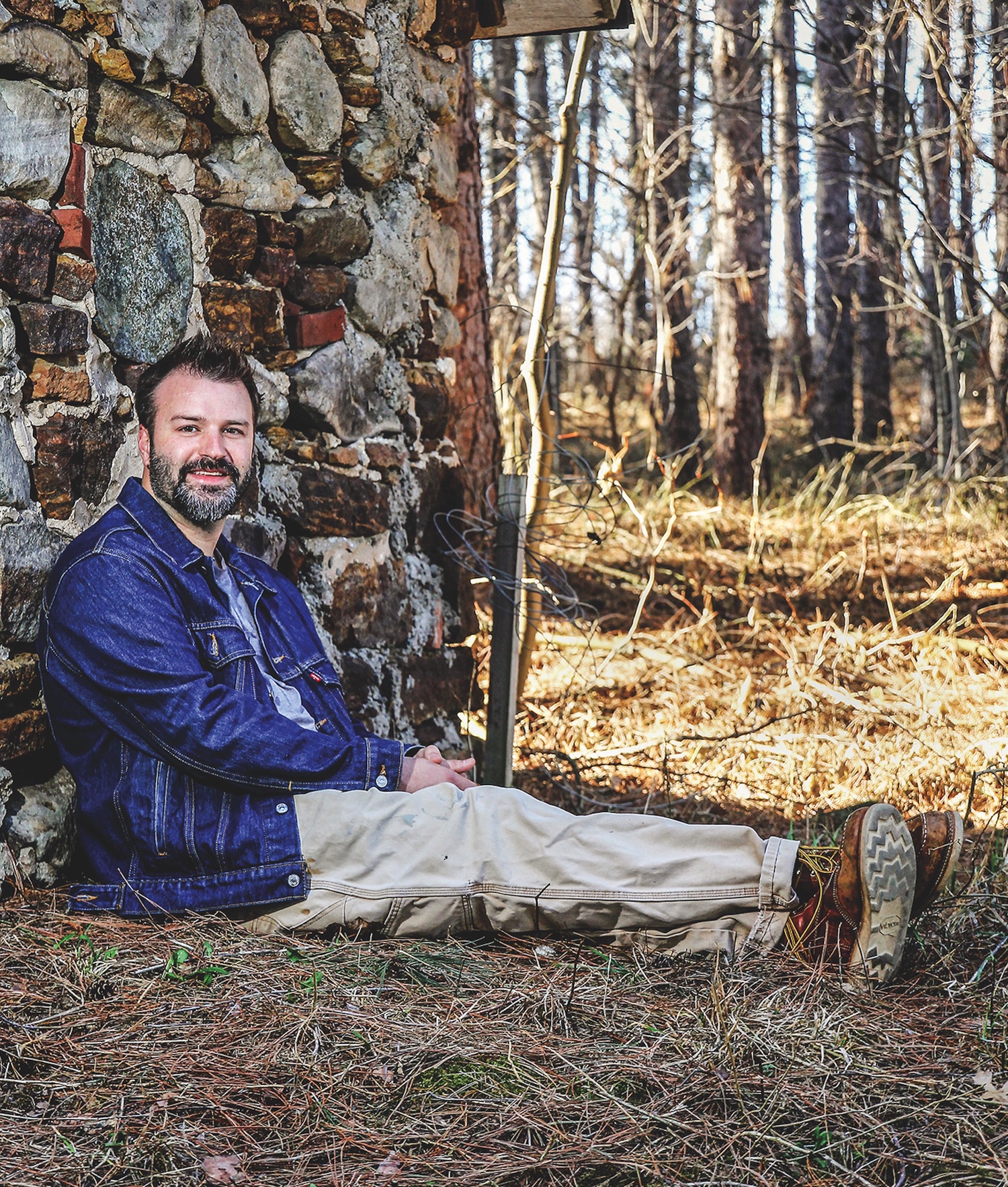
nickolas butler fiction
dionne irving, fiction
Dionne Irving is originally from Toronto, Ontario. She is the author of Quint (7.13 Books) and The Islands (Catapult Books) in 2022. Her work has appeared in Story, Boulevard, LitHub, Missouri Review, and New Delta Review, among other journals and magazines. Irving teaches in the Creative Writing Program and the Initiative on Race and Resilience at the University of Notre Dame.

dionne irving fiction
william kent krueger, fiction
William Kent Krueger is the author of twenty novels in the New York Times bestselling Cork O’Connor mystery series, which is set in the great Northwoods of Minnesota. He lives in Saint Paul and does his creative writing in local, author-friendly coffee shops. His 2013 stand-alone novel Ordinary Grace won the Edgar Award for Best Novel. This Tender Land, published in 2019, spent six months among the top ten on the New York Times bestseller list. His most recent stand-alone novel The River We Remember appeared on many lists for the Best Book of the Year and was nominated for the Edgar Award for Best Mystery. Spirit Crossing, the latest in his Cork O’Connor series, was chosen by Barnes and Noble as one of the best books of 2024. His work has been translated into more than two dozen foreign languages and optioned by Hollywood.
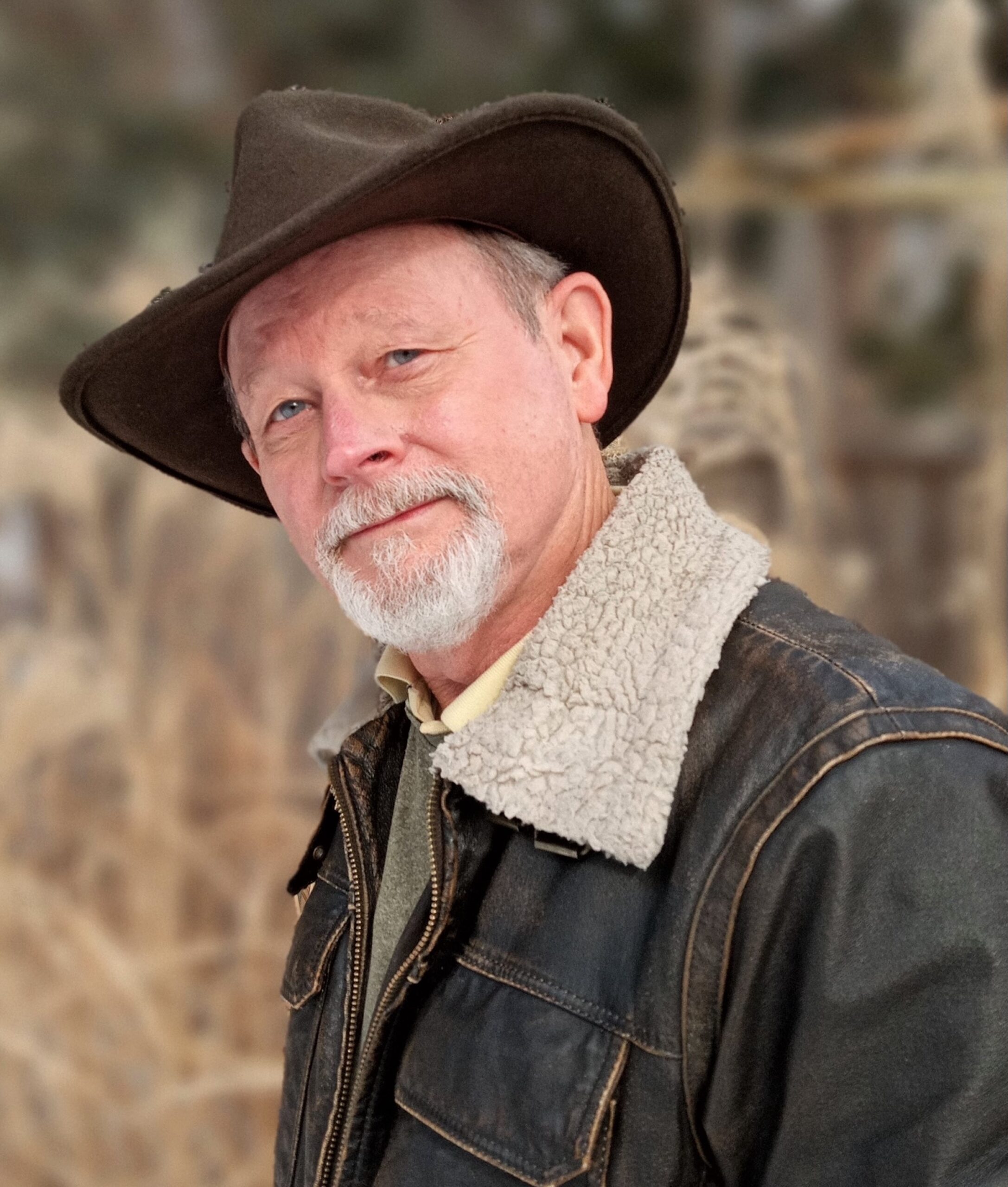
william kent krueger
fiction
heather swan, poetry
Heather Swan’s poetry has appeared in journals such as Poet Lore, Phoebe, Cold Mountain, The Raleigh Review, Basalt, About Place, Midwestern Gothic, The Hopper and anthologies such as Healing the Divide, New Poetry from the Midwest, and The Rewilding Anthology. Her chapbook, The Edge of Damage, was published by Parallel Press and won the Wisconsin Writers Chapbook Award, and her full collection, A Kinship with Ash, was published by Terrapin Books. Her nonfiction has appeared in journals such as Aeon, Catapult, The Learned Pig, Minding Nature, Edge Effects, Belt Magazine, and Resilience Journal and her book, Where Honeybees Thrive Stories from the Field, was published by Penn State Press. She teaches writing and environmental literature at the University of Wisconsin-Madison.
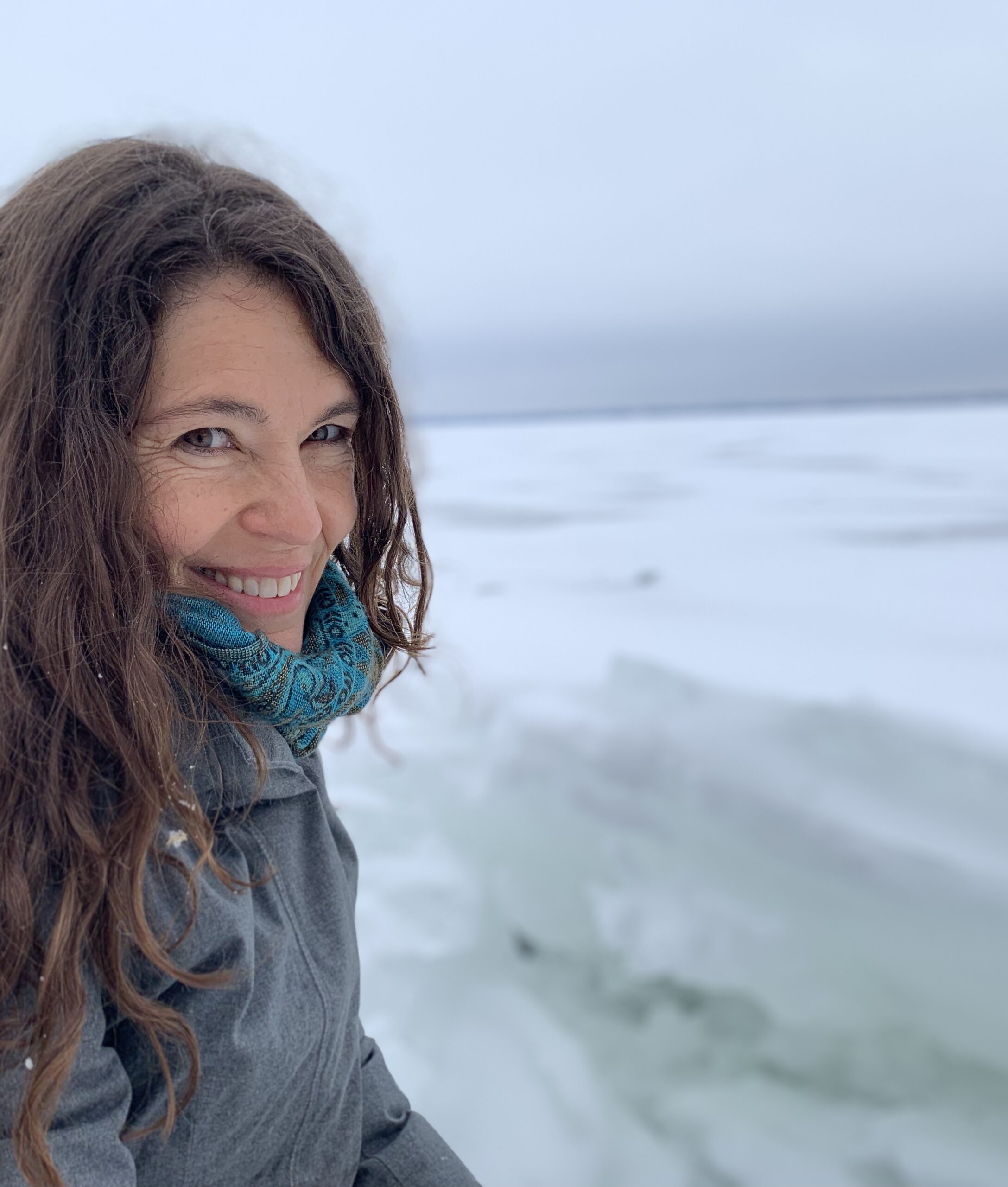
heather swan poetry
Festival Schedule
Thursday, September 18, noon - 3 pm: FREE Community Creative Lab
Thursday's Creative Lab is free; no registration required. Open to all! Trueblood Performing Arts Center, 870 Main Road
Friday, September 19: Writing Workshops, Poetry Walk, & Opening Reception. Various locations.
Writing workshops held at various locations. Find descriptions below.
10:00 am - noon and 1:30 - 3:30 pm
Poetry Walk: Explore the Door County Land Trust Domer-Nefff Nature Preserve trail hear poems related to "Holding Time" read by high school students
2:15 - 3 pm, meet at Stavkirke, 1800 Town Line Road (across from Trinity Lutheran)
Welcome reception for all registrants, workshop leaders, presenters, and their guests.
4:30 - 5:30 pm, Nelsen's Hall, 1201 Main Road
Open Mic: Share your words with other Festival attendees! Guests and non-Festival attendees are welcome.
5:30 - 6:30 pm, Nelsen's Hall, 1201 Main Road
Saturday, September 20: For Readers & Writers: Author Talks
8:00 - 8:30 am: Coffee and refreshments
8:30 - 8:45 am: Welcoming Remarks
8:45 - 10:00 am: Panel Discussion with Marcia Bjornerud, Nickolas Butler, Dionne Irving, William Kent Krueger, and Heather Swan, moderated by Paula Carter
10:00 - 10:15 am: Break
10:15 - 11:00 am: Presentation by Nickolas Butler
11:00 - 11:45 am: Presentation by Heather Swan
11:45 am - 1 pm: Lunch -- pre-order with registration or on your own
1:00 - 1:45 pm: Presentation by Dionne Irving
1:45 - 2:00 pm: Break
2:00 - 2:45 pm: Presentation by Marcia Bjornerud
2:45 - 3:30 pm: Presentation by William Kent Krueger
3:30 - 3:45 pm: Closing remarks
3:45 - 4:15 pm: Book signing with Dionne Irving, Marcia Bjornerud, and William Kent Krueger
MORNING WORKSHOPS: 10 aM - noon
FICTION: Plot and Narrative: Looking for a Perfect Marriage with William Kent Krueger THIS WORKSHOP IS NOW FULL; WAITLIST ONLY
Plot and Narrative: Looking for the Perfect Marriage
Plot is the backbone of a good piece of fiction, the necessary skeleton. Narrative is the soul. Striking a balance between these two, sometimes competing, essentials is not an easy task. We'll review the elements of both plot and narrative and, along with some in-class exercises, attempt a better understanding of that elusive balance.
POETRY: Rift and Repair with Heather Swan THIS WORKSHOP IS NOW FULL; WAITLIST ONLY
Impermanence is an essential part of our existence. Forms change, landscapes change, we change. We break and heal. We plant seeds and say farewell. How can poetry help us make these transitions gracefully? In this workshop, we will bring our attention to the rifts and the moments of repair in order to find peace and healing in the present moment through poetry.
FICTION: Yesterday, Today and Tomorrow: Time and Clocks in Fiction with Dionne Irving
Fiction is all about time. Stories compress time and they expand time, working with their own internal and external clocks. In all fictions—however large or small—time passes and things happen. We must think about how time is at the center of writing credible and memorable artistic fiction. While time can be either circular, linear, or nonlinear, there are always beginnings and endings. Understanding how to employ time for artistic purposes is central to good writing practice. In this workshop we will consider how clocks work in stories. We will discuss and engage with the natural world, humor, pacing, and a variety of story forms to deepen our understanding and appreciation of time and essential narrative function.
MULTIGENRE: Writing 101: A Beginner's Toolkit with Marianne Fons and Alessandra Simmons Rolffs
Many people who love words and stories would like to try writing, but something holds them back. Maybe they fear the blank page, or they think real writers belong to some secret club, or they're just not sure how to start. If you have a novel, a memoir, or a collection of poems inside you, or just want to learn about the writing process, this workshop will demystify the solitary practice of writing and equip you with the tools to help you take those first steps.
AFTERNOON WORKSHOPS: 1:30 - 3:30 PM
NONFICTION: Letting the Natural World Speak: Creative Nonfiction with Humans in the Background with Marcia Bjornerud THIS WORKSHOP IS NOW FULL; WAITLIST ONLY
Wisconsin has been the inspiration for eminent natural history writers including John Muir, Aldo Leopold, and Sigurd Olson. In this workshop, we will take inspiration from their legacies and consider different approaches to writing about nature and science for non-specialist readers. The natural world is full of untold stories, with wilder plotlines and stranger protagonists than anything in human-centered literature. What happens when we give voices to rocks, rivers, landscapes? How can we maintain scientific nuance while crafting narratives that keep readers reading? Is anthropomorphism taboo -- or necessary? Are there fresh new forms of nature writing that could help 21st century Earthlings navigate the Anthropocene?
FICTION: From Inspiration to Authenticity with Nickolas Butler THIS WORKSHOP IS NOW FULL; WAITLIST ONLY
Writer Nickolas Butler derives much of his material from overheard conversations or the stories people tell him. But how does a writer take fragments of ideas that have nothing to do with a potential fictional project, and turn those fragments into short stories, or even novels? In this workshop, Butler will share his own "process", his philosophy on "following stories", and how his abbreviated journey into politics also informs his writing.
POETRY: Capturing the Moment through Haiku with Albert DeGenova
In this workshop, we'll explore the art of haiku, a traditional Japanese form of poetry that captures fleeting moments with imagery and emotion. Participants will discuss how to observe the world around them and translate those observations into concise, evocative poems. The focus will be on "presence"--capturing a moment in time. In Japanese tradition, the haiku aesthetic is a "zen moment of clarity" referring to a sudden realization or epiphany that brings understanding, a shift in perspective, often associated with a state of mindfulness and self-awareness. Through discussion and writing prompts, we will attempt to distill the essence of a moment into three lines of poetry.
FICTION: Getting it Right When You Write Historical Fiction with Ann Heyse
Both readers and writers of historical fiction will enjoy this interactive workshop led by Ann Heyse, author of The Light is Ours, a novel set in Door County in 1871-72. Heyse will discuss how she balances the two equally important aspects of this genre: writing and research. She'll offer tips about how to conduct research effectively and offer resources and examples. Finally, with some low-key, interactive exercises, she'll offer a chance to imagine the lives of historical characters and write about them in a creative way.
2025 Additional Faculty
albert degenova, poetry
Albert DeGenova is an award-winning poet, publisher, and teacher, as well as the Executive Director of Write On, Door County. He is the author of five books of poetry and two chapbooks. DeGenova is the founder of After Hours Press and editor of After Hours magazine, a journal of Chicago writing and art which launched in June of 2000. He received his MFA from Spalding University in Louisville. He is also a blues saxophonist.

albert degenova
poetry
marianne fons, prose
Marianne Fons spent many years in the quilting industry, co-authoring numerous how-to books, including a best seller, Quilters Complete Guide, and publishing the magazine, Fons & Porter's Love of Quilting. A lover of the written word, she is pursuing an encore career in fiction writing, has completed two novels, and has landed an agent. She's studied writing craft with noted authors Rebecca Makkai, Lan Samantha Chang, and Shelby Van Pelt. She holds degrees in English from Drake University.
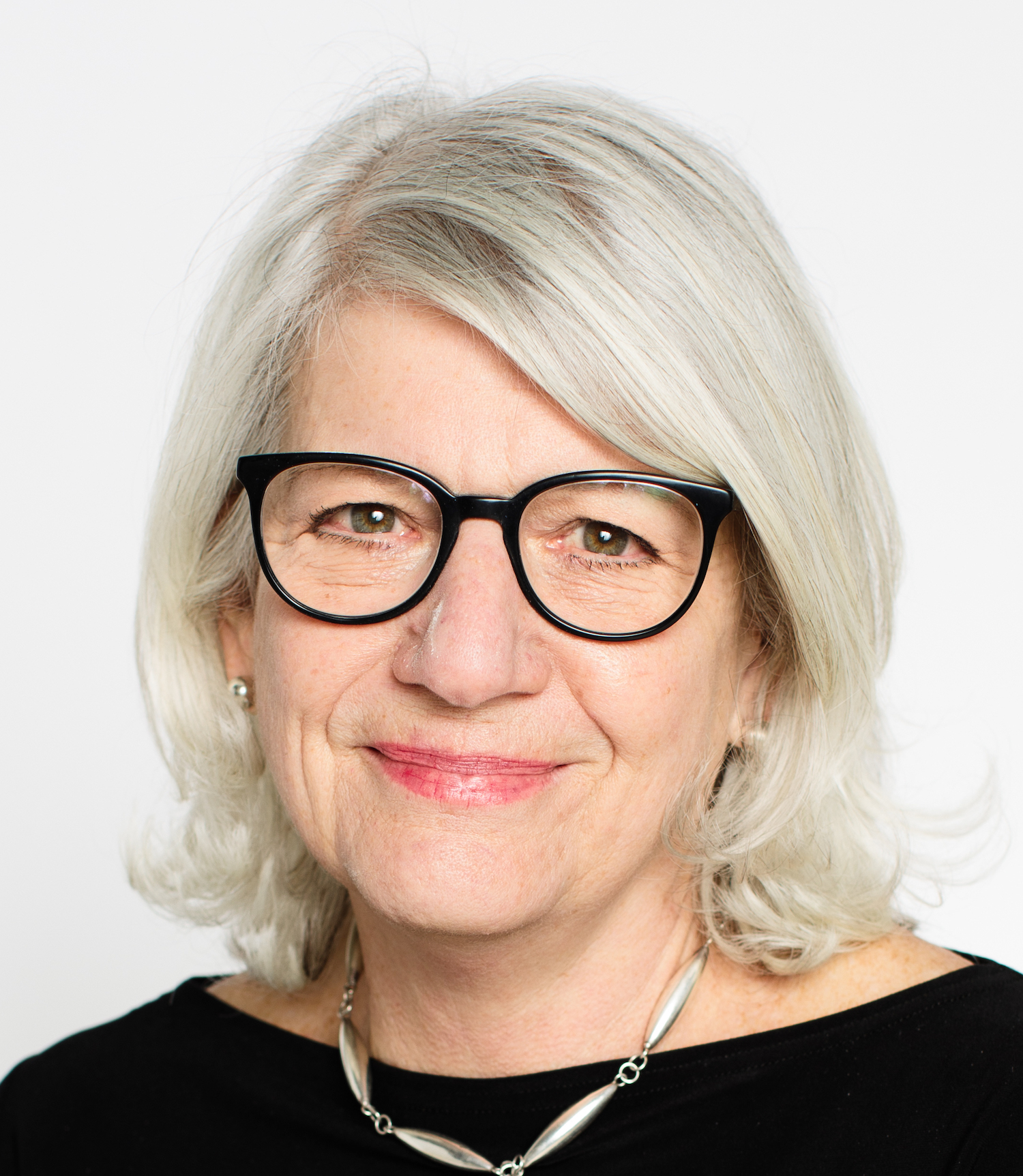
marianne fons
prose
ann heyse, prose
Ann Heyse is a multi-genre author who most recently published The Light is Ours, a novel of historical fiction set in a Door County lighthouse in 1871-72. The book won a Wisconsin Writer's award in 2023. A retired teacher, she continues to encourage writers through workshops, classes, and writing groups.
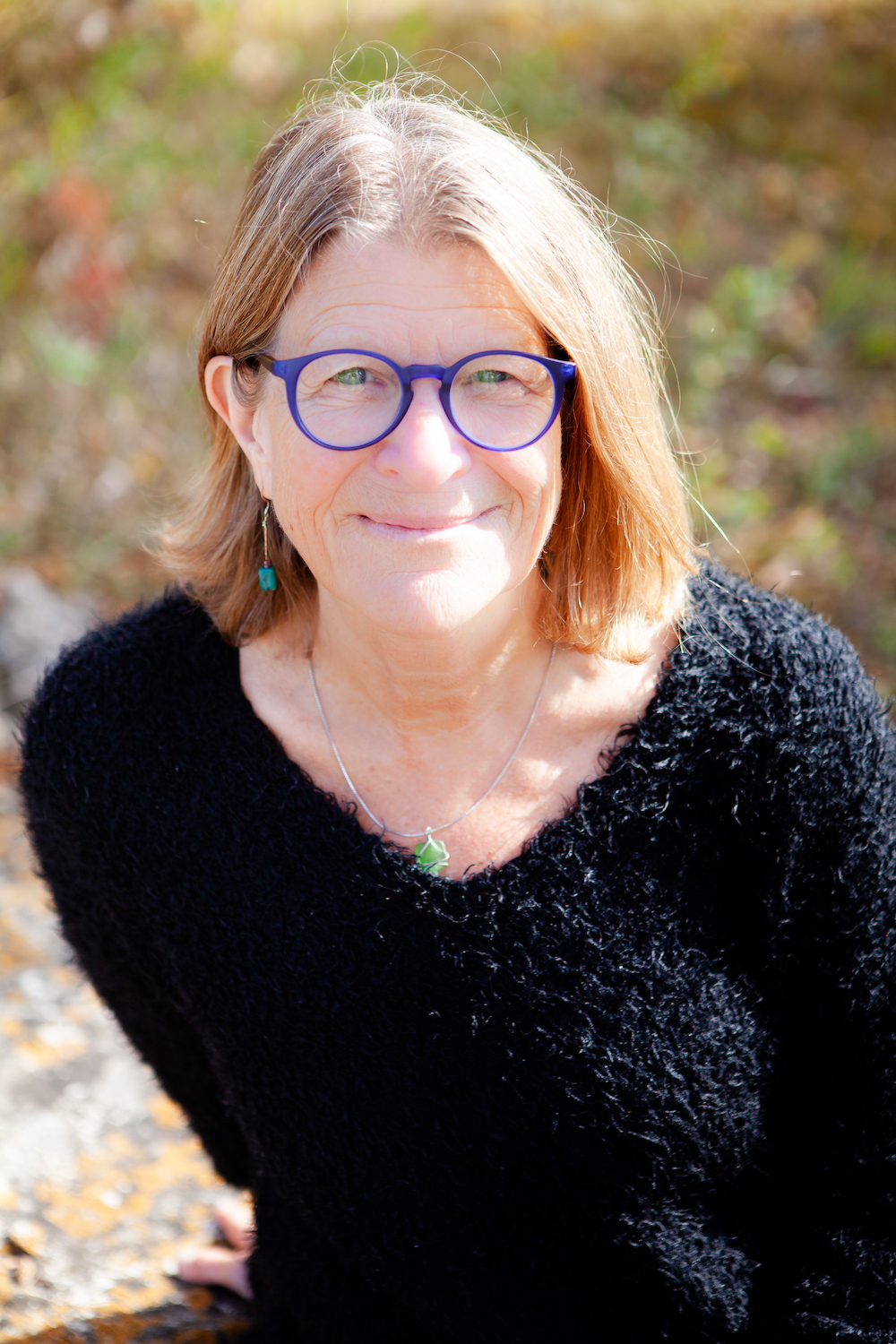
ann heyse
prose
alessandra rolffs, poetry
Alessandra Rolffs is the executive director of Gathering Ground, a nonprofit with the mission to connect learners of all ages to nature, community and healthy food through sustainable farming education on Washington Island. She is also a writer, mother of two boys, and she helps operate Hoot Blossom, a flower and veggie farm, with her husband. Her poetry and essays have been published in The Southern Review, Spillway, About Place Journal and elsewhere. Her column Everyday Nature is published in the Washington Island Observer. She holds a PhD in Eco-Literature from UW-Milwaukee and MFA in Creative Writing from Indiana University.

alessandra rolffs
poetry
2025 Books
Turning to Stone: Discovering the Subtle Wisdom of Rocks, by Marcia Bjornerud
From the unique polished limestone rocks at Schoolhouse Beach to the dolostone of the Niagara Escarpment and the fossils under our feet at Percy Johnson and Boo’s Bluff, Washington Island offers a particularly good opportunity for both reflection and geologic field study. The perfect place to read about rocks.
In her 2024 book, Turning to Stone: Discovering the Subtle Wisdom of Rocks, Bjornerud invites the reader to share in her knowledge and appreciation of Planet Earth, the foundation upon which we literally build our lives. As she explores elements and forces from the earth’s core to its crust, she imparts life lessons gleaned from the rocks she has spent her career studying. For Marcia Bjornerud, every day is Earth Day.
Make no mistake: Turning to Stone is no beach read (except maybe at Schoolhouse Beach?) and Bjornerud, is no new-age navel-gazer. A professor of environmental studies and geosciences at Lawrence University, she offers us the equivalent of Geology 101. Each chapter provides a discussion of types of rock such as sandstone, basalt and granite, along with vivid descriptions of the forces that shape them and that they in turn shape.
While we might think of rock as inert, Bjorerud describes our planet as an integral system of air, minerals, water and lifeforms, with its own extraordinary history and power. From the everyday dynamics of water purification by aquifers, to the genesis of earthquakes and volcanoes, Bjornerud explores the impact of the earth’s infrastructure on the life it both makes possible and destroys
Though scientifically rigorous, Bjornerud does not give us a dry textbook. She tackles complex phenomena with lively prose and a gift for narrative. Wisconsin readers will particularly appreciate her points of reference. Many of her examples are centered within the state, particularly the Driftless Area and the glacial features created by the Ice Age. She draws from extensive fieldwork in Norway, especially Arctic Svalbard. Even Lutheranism makes an appearance!
Bjornerud makes a bold choice: a science book that is also deeply personal. As she travels through geological and real time, she weaves in her life story and crafts an unusual form of memoir. Beginning with her childhood in the Driftless Area, the stories she shares are both professional and personal: the challenges of being a woman in an historically masculine field, the rigors of fieldwork, her experiences with loss, grief, and fulfillment. The hard scientist is humanized as we learn of her struggles with an unhappy marriage, single parenthood, a loved one’s substance abuse.
Above all, she wants us Earthlings to listen to our planet’s stories and appreciate the lessons it can teach us. For Bjornerud, rocks are not merely a metaphor for persistence, durability, and metamorphosis, but intentional forces that we are just beginning to understand. In much the same way that recent studies have shown us that trees communicate, so too the earth is not an passive platform on which we live our lives. Cognizant of the perils of climate change, development, and other existential threats, it’s Bjornerud’s hope that by learning more about the dynamics of the amazing planet we live on, we Earthlings can come to better understand the responsibility we hold for its future.
In September, the Washington Island Literary Festival is pleased to include Dr. Bjornerud on the program. In addition to speaking, she will give a workshop on September 19th at 1:30 for aspiring nature writers. Entitled “Letting the Natural World Speak: Creative Non-fiction with Humans in the Background,” Bjornerud will share her strategies for giving voice to the natural world.
Turning to Stone is available at Fair Isle Books and Gifts and through the Washington Island branch of the Door County Public Library.
This article is part of a series of reviews featuring authors who will participate in the Washington Island Literary Festival, September18-20. This year’s theme is “Holding Time.”
A Forty Year Kiss Holds Time for Love by Nickolas Butler
“All novelists are spies or should be” writes Nickolas Sparks when writing about the inspiration for his latest novel, “A Forty Year Kiss.” He was sitting at a bar in Chippewa Falls when he overheard a conversation between a couple near his parents’ age. The man said “I still dream about you...I dream about kissing you. Can I kiss you?” And kiss they did (not once, but 3 times) and so passionately that Butler felt himself blush. His author brain was off and running, wondering who these people were and what brought them back together. His novel is an apt starting point for our festival theme of “Holding Time.”
Butler’s breadth as an author shines in this literary romance where he shifts from the dark topic of his last book (the thriller “Godspeed”) to one with an unapologetic love story at the center. This novel doesn’t focus on the young love our culture readily celebrates, but one Butler finds more interesting with older characters who have a backstory that allows for interesting subplots. Just as he shone a light on less frequently explored male friendships in his award winning debut novel “Shotgun Lovesongs” over a decade ago, Butler tenderly explores the dance of old love. He follows characters who strive to incorporate the experiences of lives lived separately seeking to find a path that embraces mistakes, other relationships, and layers of family with all the accompanying complications.
Butler is only the 2nd author to be invited to return to our Washington Island Literary Festival in its 13 year history. With his rich characters and their imperfect varied lives, Butler’s Wisconsin glows with the same genuine light that the author Kent Haruf (of “Our Souls at Night”) brought to small town Colorado. This gem of a novel offers an uplifting look at the love possible in our less celebrated older decades and crafts a richly textured offering of possibility that will leave readers with a bubble of hope as we all age into those decades ourselves.
Nickolas Butler is an internationally bestselling author of multiple novels and the recipient of multiple literary prizes and has published shorter works in publications such as Ploughshares and The New York Times Book Review. A graduate of the University of Wisconsin-Madison and the Iowa Writers Workshop, he now lives with his wife and two children on sixteen acres of land in rural Wisconsin. As a part of the literary festival he’ll present a workshop on Friday Sept 19th and participate in the author panel and book presentations on Saturday Sept 20th. Readers and writers can register at wilitfest.com
“A Forty Year Kiss” is available at Fair Isle Books and through the Washington Island Branch of the Door County Library.
This article is part of a series of reviews featuring authors who will participate in the Washington Island Literary Festival, September 18-20. This year’s theme is “Holding Time.”
Quint by Dionne Irving
Dionne Irving tells us that the true story inspiring her novel, Quint haunted her. The story may be commonplace for those raised in Irving’s native Canada, but for the rest of us it’s probably unfamiliar. Five girls, quintuplets, were removed from home and parents in Northern Ontario, placed in guardianship by the government, and from then, until age eighteen, were a tourist attraction. Visitors swarmed to Quintland! They viewed the babies behind clear glass, and then mirrored glass at the girls grew. The quints, now a commodity, performed their lives. From 1940 on, through war and a Depression, they were visited, renowned. Commercially, their success was huge. Personally, emotionally, they lived what we may imagine. . .
Though we don’t have to. Hauntingly, in integrated chapters, Dionne Irving’s novel imagines for us. The narrative takes on voices of all the major players, including father, mother, all five girls, the girls’ exploiters, their one supporter, the town where they were born. A sixth sister who died shortly after birth, unnamed, is given omniscient voice. And so, this haunting tale is told, most globally, by a ghost.
It's an ambitious novel. Reading, we soon feel it isn’t only thrills and chills, a tale “incredible but true!” Big questions haunt this book. They resonate. What makes us human? What are conditions, steps and stages, by which we dehumanize each other—and ourselves? In Irving’s hands, answers to such questions are strange, awful, commonplace: familiar as a jingle selling soap, breakfast cereal, fresh fruit or breath—whatever people can be made to think they want. Or need.
Dionne Irving will be a featured author at the upcoming Washington Island Literary Festival, 18-20 September. She’ll conduct a writers/readers workshop, “Yesterday, Today and Tomorrow: Time and Clocks in Fiction,” on Friday, 9/19. For more information, please visit wilitfest.com.
Quint is available at Fair Isle Books and through the Door County Public Library system.
This article is part of a series of reviews highlighting books that will be featured at the Washington Island Literary Festival, September 18-20. This year’s theme is “Holding Time.”
Spirit Crossing by William Kent Krueger
Author William Kent Krueger has been entertaining readers with mystery novels featuring private investigator (and former Aurora, Minnesota, sheriff) Cork O’Connor since the late 1990s, beginning with Iron Lake, published by Simon & Schuster in 1998.
Spirit Crossing (2024) is #20 in the Cork O’Connor series, with #21, Apostle’s Cover, set for release in early September.
In Spirit Crossing, a shallow grave is discovered by O’Connor’s seven-year-old grandson near what was thought to be a secret blueberry patch. The young boy, nicknamed “Waaboo,” Ojibwe for “Little Rabbit,” possesses a unique gift, or curse—the ability to communicate with the spirit world. His sense that the deceased young woman, clearly Native when her body is exhumed, is “lost,” unable to make the journey from life to the afterlife, sets the story in motion.
Complicating the quest for the girl’s killer is the fact that another young woman, the teenager daughter of a local politician, is also missing. The contrast between interest from law enforcement and the media over the two missing girls, one Native, one non-Native. is one of the book’s themes. In his Author’s Note, Krueger states that homicide is the third-leading cause of death for Indigenous girls and teens.
When Waaboo’s ability to sense what others’ can’t leads to the discovery of the second girl’s body, evil forces connecting the two murders threaten the young boy’s safety.
Set in the north woods of Minnesota, in what Cork refers to as Indian Country, the book introduces us to a sizeable cast of Lakota, Ojibwe, Anishnaabe, Shinnob, and Cree characters in addition to many non- or part-Native ones. Cork is himself half Irish and half Ojibwe. Though I had to draw a chart inside the back flap of my copy of Spirit Crossing to keep them all straight, the fact that this was my first “Cork” book was not a problem.
Krueger is a master at raising the stakes as the story progresses. Members of O’Connor’s close-knit family deal with violence at a pipeline protest, nosy journalists who want access to Cork’s grandson, a stalker with a rifle, and the ongoing double murder investigation—all while preparing for a wedding.
In addition to the Cork O’Connor series, Krueger has received praise and honor for his stand-alone novels, Ordinary Grace (2013) and This Tender Land (2019), both New York Times bestsellers.
William Kent Krueger is one of five presenting authors for this year’s Washington Island Literary Festival, will read from his work and autograph books on Saturday, September 20. His workshop on Friday is full.
Spirit Crossing, by William Kent Krueger, is available at Fair Isle Books and Gifts, and through the Washington Island branch of the Door County Public Library.
This article is part of a series of reviews featuring authors who will participate in the Washington Island Literary Festival, September 18-20. This year’s theme is “Holding Time.”
dandelion, by Heather Swan
Madison poet and nonfiction writer Heather Swan is an important voice in contemporary environmental literature, with four acclaimed books to date. Her luminous poetry collection, dandelion, walks a knife-edge between love and loss, both personal and global: the wonder and desolation of an increasingly damaged natural world and her journey through mourning toward healing after losing her father to Parkinson’s. Aldo Leopold wrote in the 1940s that to be an ecologist “is to live always in a world of wounds”; there is deep grief for the natural world in this book, but also joy and awe for what still is, despite the harm we humans have wrought. Swan shows us a world made all the more precious for being imperiled, one where love is clarified and intensified by death.
The opening poem, “Invitation,” conjures the forest as a sacred space “beyond the noise / of industry and ego,” but nature here is not prettified. It contains “blood of the sparrow / blood of the shrew.” The greenworld is both profoundly restorative—essential to our survival on both the physical and the spiritual level—and plagued by flames and floods, melting glaciers, pesticides that sicken the poet’s baby daughter, the looming “abyss of extinction.” “How much damage can we sustain?” asks Noah’s wife in a moving section that imagines her reflections from the Ark.
Many of the poems take place on or near water. Crucially, images of permeability recur throughout the book. The notion that all things are interconnected is the central tenet of ecology and this poet’s credo. “Only by dissolving / this mask / of separation, / by becoming / porous enough / can we / begin to fill, / to belong.” Swan writes vividly of threshold moments at twilight, when boundaries become blurred, moments when the speaker is transformed by her interaction with her surroundings, dissolved into something greater: “no I, only we, untethered to me.”
Another recurrent theme is kinship, not only with the father, daughter, son, husband, and friends who appear but with all beings—muskrat, carp, antelope, lichen, birds, sharks, elephants—even tomato seeds and stars: “all of us of a kind.”
There is a gorgeous physicality in Swan’s writing. “Lie down in a field of lavender. / Drizzle honey on your tongue”, allow bees to “seduce your wrists,” she writes in “How to Capture a Swarm” (she is a beekeeper as well as author, teacher, and international researcher). Elsewhere she writes of “the frog’s throaty vibrato / pouring like liquid / into you.” The poems are always anchored in the body, this body—the only one we have, “briefly / so very briefly,” as the last poem, “Gleam,” reminds us.
What comes through strongest in this book is a depth of love—for family, friends, the creatures and plants, the lakes and rivers, and for this astounding, multifarious, impossibly beautiful and endangered world. It is the ability to see ourselves as connected to all life that allows us to move forward at times of loss and grief. In the stunning second poem, “While the World Burned On,” the speaker is on a lake at dusk listening to her companion recount a son’s death, when suddenly a squadron of geese explode through the gathering dark like messengers from the beyond: “the geese pulling us forward / as they did the impossible— / not stopping, but flying on together, / though the air was thick with dread / and there was so very little light.” Later in the book, after the father’s death, the geese appear overhead again, this time at dawn, circling over the two women before flying north, signaling a release or redemption: “I knew, then, you were free.”
Even in dark times, Swan reminds us, “There will be stars / caught in the water; // let your dark eyes / mirror that shine.”
In September, the Washington Island Literary Festival is pleased to include Heather Swan on the program. In addition to speaking, whe will give a poetry workshop on September 19 at 10 am. Dandelion is available at Fair Isle Books and Gifts.
This article is part of a series of reviews featuring authors who will participate in the Washington Island Literary Festival, September 18-20. This year’s theme is “Holding Time.”
About the Washington Island Literary Festival
The Washington Island Literary Festival is a moveable feast of writing, reading, discussion, and thought about the written word. Writers' workshops, author panels and presentations, readings and social activities are scheduled at various quaint, historic, and beautiful venues around the Island.
Participants have a unique opportunity to share time with prominent authors and dedicated readers in the intimate, friendly setting of Washington Island, a half-hour by ferry from the Door County mainland, in September's color and warmth.
If you aren't an Island resident, we recommend you secure your housing as soon as possible! Visit Destination Door County for a listing of accommodations. (Narrow your search to Washington Island.)
Come for all or just part of the Festival. We look forward to welcoming you to our community!
Thank you to our partners and sponsors
Lawrence E. Strickling & Sydney L. Hans
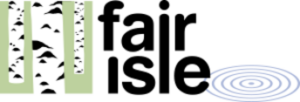




Connect and Celebrate with Literature:
What Past Participants Love
Marion Boyer
The venues chosen for all the events were just perfect. The barn was magical with its lights and chickens and beautifully laid tables. I appreciated being able to give my workshop on the veranda of such a lovely hotel! The auditorium was perfect for the panel and readings. It was lit so well and the sound systems were flawless. Believe me, as planning chair I appreciate these things.
Paula Carter
An intimate engagement with world-renowned writers.
Sandra Lindow
Intelligent and challenging workshops in an absolutely gorgeous setting.
Libby Sachs
Washington Island is a perfect place to read and write and therefore a perfect place to immerse one's self in the spoken and written word.


